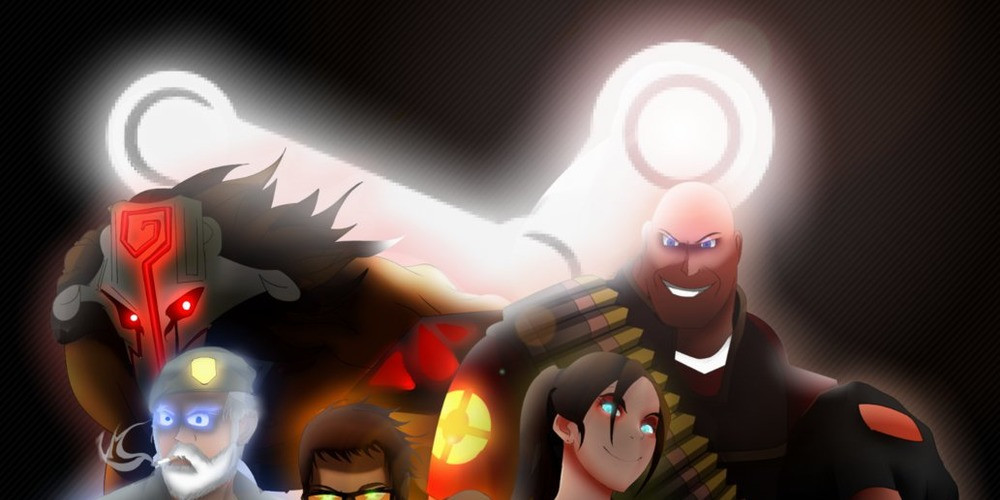Steam's AI Content Decision Sparks Fear of Quality Decline: Navigating the Future of Gaming Innovation

The gaming community on Steam is currently in an uproar following a decision that could potentially lower the quality bar for games on the platform. Steam's controversial move to reverse its ban on AI-generated content has left many players worried about a potential influx of subpar gaming experiences reminiscent of the chaos brought by the now-defunct Greenlight program. Here, we delve into the implications of Steam's latest policy change and what it means for the future of gaming.
Steam's former Greenlight program was a mixed bag of innovation and low-quality chaos, where community voting determined the fate of games seeking storefront glory. Despite its noble intentions, the system was rife with manipulation, leading to a digital marketplace cluttered with unfinished and substandard titles. The program's discontinuation in 2017 was a relief to many, signaling Valve's commitment to curating a higher caliber of gaming content. But with the recent announcement regarding AI-generated content, that commitment seems to be wavering, stirring unease within the gaming community.
AI-generated content, while a marvel of modern technology, often lacks the finesse and artistry of human-created material. The initial prohibition of such content by Steam was a stand for quality control, acknowledging that AI's current capabilities might not meet the high standards demanded by gamers and developers alike. However, Steam's reversal, framed as a learning opportunity and a nod to technological progress, may inadvertently open the floodgates to a new era of sub-quality games flooding the market, much to the chagrin of players who remember the Greenlight era all too well.
Steam's approach to curation, now leaning on player reports for issues such as copyright infringement, has also raised eyebrows. The lack of pre-release checks could mean the burden of quality assurance falls on the players themselves – a daunting prospect considering the sheer volume of games on the platform. It's a step back from proactive content management and could invite a host of problems, from increased customer dissatisfaction to potential legal quandaries, that could tarnish Steam's reputation as a trusted digital storefront for gaming.
In conclusion, Steam's recent policy reversal concerning AI-generated content is a polarizing topic. While it reflects an openness to embrace new technologies, the decision also risks a regression to an era marked by a deluge of low-quality games. The community's outcry is not just about nostalgia for better-curated times but also a call to maintain a standard that respects both the art of game development and the expectations of gamers. Only time will tell if Steam's gamble on AI-generated content will pay off or if it will be a lesson learned the hard way. As the gaming industry continues to evolve, the balance between innovation and quality remains a critical battleground for platforms like Steam.
Latest posts
See more-
![The Last of Us Part II: In-Depth Character Analysis and Storyline Exploration]() Editor’s Choice
2024-08-11
The Last of Us Part II: In-Depth Character Analysis and Storyline Exploration
The Last of Us Part II is an action-adventure video game that has gained significant popularity since its inception. Developed with immense creative prowess by...
Editor’s Choice
2024-08-11
The Last of Us Part II: In-Depth Character Analysis and Storyline Exploration
The Last of Us Part II is an action-adventure video game that has gained significant popularity since its inception. Developed with immense creative prowess by...
-
![CrossCode Developer Announces Alabaster Dawn, Enters Early Access in Late 2025]() News
2024-08-12
CrossCode Developer Announces Alabaster Dawn, Enters Early Access in Late 2025
In 2021, Radical Fish Games initially introduced a new action RPG titled Project Terra. Now, they have officially named it Alabaster Dawn and announced that...
News
2024-08-12
CrossCode Developer Announces Alabaster Dawn, Enters Early Access in Late 2025
In 2021, Radical Fish Games initially introduced a new action RPG titled Project Terra. Now, they have officially named it Alabaster Dawn and announced that...
-
![Alabaster Dawn Planned to Have 30-60 Hours of Playtime, Demo Launching in Early 2025]() News
2024-08-13
Alabaster Dawn Planned to Have 30-60 Hours of Playtime, Demo Launching in Early 2025
Radical Fish Games has made an exciting announcement regarding their upcoming action RPG, Alabaster Dawn, which is set to enter early access in 2025. In...
News
2024-08-13
Alabaster Dawn Planned to Have 30-60 Hours of Playtime, Demo Launching in Early 2025
Radical Fish Games has made an exciting announcement regarding their upcoming action RPG, Alabaster Dawn, which is set to enter early access in 2025. In...
Latest Reviews
See more-
![]() Action
Cult of the Lamb
Action
Cult of the Lamb
-
![]() Action
WILD HEARTS™
Action
WILD HEARTS™
-
![]() Casual
Gacha Club
Casual
Gacha Club
-
![]() Action
Call of Duty®: Warzone™ 2.0
Action
Call of Duty®: Warzone™ 2.0
-
![]() Action
Gacha Cute
Action
Gacha Cute
-
![]() Action
Cuphead - The Delicious Last Course
Action
Cuphead - The Delicious Last Course










